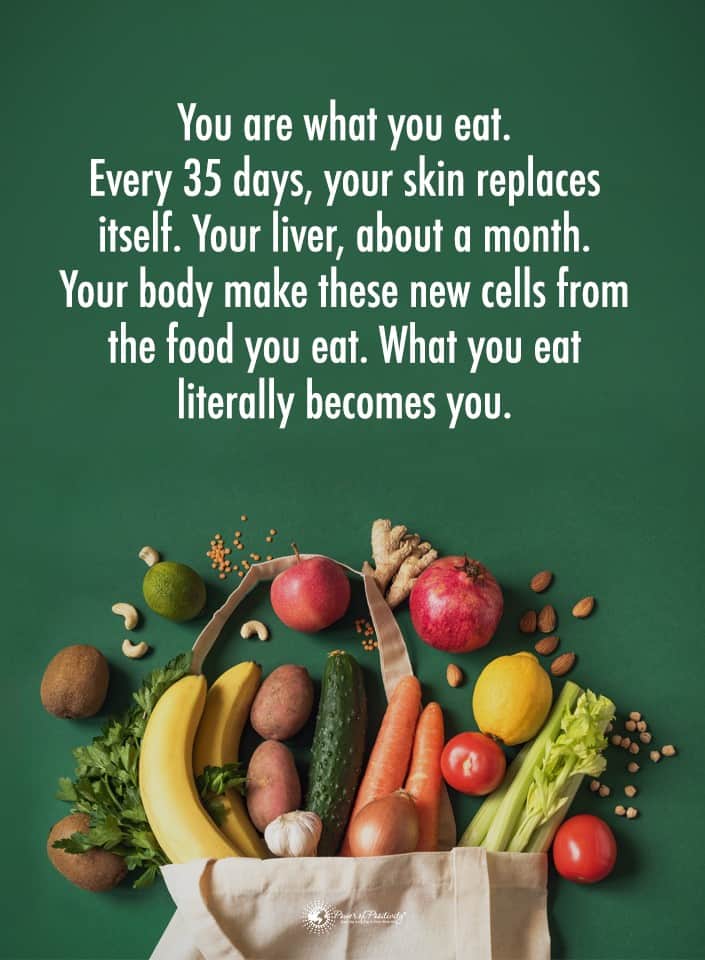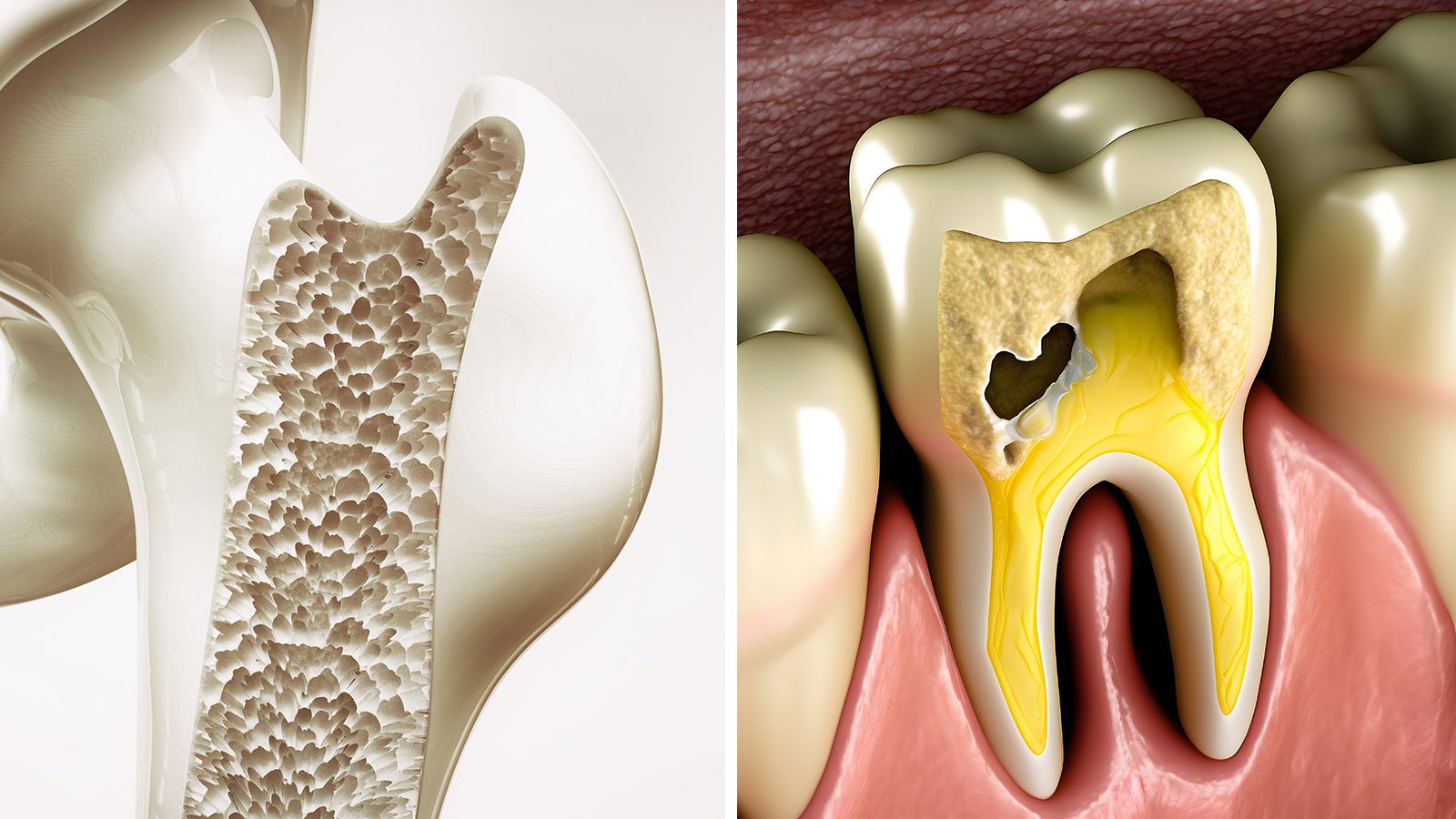Here’s why calcium is so important to your health.
Have you ever considered how vital calcium is to your body’s well-being? This mighty mineral is not just about strong bones and teeth. Indeed, it plays a key role in many parts of your health. Unfortunately, the brain sends distress signals when your body doesn’t get enough of it. Understanding how to decode those signals is important to enjoy a healthier life.
So, let’s dive into this often-overlooked topic and unravel the mysteries of calcium deficiency, one symptom at a time.
What Happens When You Don’t Have Enough Calcium?

1 – The Perils of Weak Bones
When we think of calcium, our minds often jump straight to our bones—rightly so! The mineral is the cornerstone of strong, healthy bones. It’s like the cement that keeps the bricks of our skeletal structure firm and sturdy. But when calcium levels drop, it’s as if this cement starts to crumble. The result? A condition we often hear about in hushed tones—osteoporosis.
Osteoporosis is a silent stalker; you might not even know you have it until a sudden fall results in a fracture. It’s especially a concern as we age, turning our once formidable skeletal framework brittle and fragile. But fear not! You can take steps to bolster your bone health. Incorporate calcium-rich foods, including dairy products, leafy greens, and almonds into your diet. And don’t forget Vitamin D – the faithful sidekick of calcium, helping your body absorb this essential mineral.
2 – Calcium Deficiencies and Dental Dilemmas
Your teeth are not just tools for a winning smile; they also reflect your nutrient intake. Think of calcium as the protective armor for your teeth, safeguarding them against cavities and decay. When those levels take a nosedive, your teeth bear the brunt. They become more susceptible to problems that could cause you to visit the dentist frequently.
So, how do you keep your pearly whites sparkling and strong? Aside from brushing and flossing, ensure your diet is teeming with calcium. And remember, it’s not just about dairy. If you’re lactose intolerant or vegan, turn to fortified plant-based milk, tofu, and leafy greens. They’re all excellent sources of this tooth-defending mineral.
3 – Muscle Mysteries
Now, let’s talk about your muscles and calcium. Did you know calcium works behind the scenes every time you step, lift a bag, or even stand still? This mineral is essential for enabling our muscles to contract. This process can go haywire without enough calcium, leading to muscle aches, cramps, and spasms. It’s like trying to operate machinery without enough oil—things don’t run smoothly.
If you’re experiencing unexplained muscle cramps or spasms, it might be your body’s way of signaling calcium deficiency. Incorporate calcium-rich foods into your meals to keep your muscles in top form. Don’t worry – keep reading to get to our list of the best foods to supply your calcium needs.
Lastly, don’t forget to stay hydrated and exercise regularly, which helps maintain muscle health and calcium levels.
4 – Nervous System Disruptions
Calcium’s role isn’t limited to bones and muscles; it also plays a key role in our nervous system. Think of it as a messenger, helping to transmit nerve signals between the brain and every part of your body. When calcium is scarce, this communication can get disrupted. The result? You might experience tingling or numbness in your hands and feet or even face mental confusion and memory issues. It’s as if the body’s internal wiring is experiencing a short circuit.
These subtle and often overlooked symptoms are crucial indicators of your body’s calcium needs. To support your nervous system, ensure your diet is rich in calcium. Also, consider trying a few fun activities that promote mental well-being, like mindfulness or brain-stimulating puzzles, which can complement the physical aspect of calcium intake.
5 – Cardiovascular Concerns When You Lack Calcium
Let’s get to the heart of the matter (bad pun intended!). Calcium’s influence extends to our cardiovascular health as well. This mineral helps in the smooth functioning of heart muscles and the regulation of heart rhythms. When your necessary levels drop, it can spell trouble for your heart, leading to potential irregularities in heart rhythm and even increasing the risk of heart disease. It’s as if the heart’s natural rhythm is out of tune due to a lack of this vital nutrient.
Maintaining a healthy diet is important to keeping your heart beating strong and steady. Regular cardiovascular exercises, like brisk walking, cycling, or swimming, can strengthen your heart and improve overall calcium absorption.
6 – Hormonal Harmony
You might be surprised to learn that this nutrient plays a significant role in hormonal balance. It’s particularly involved in regulating hormones related to bone health, such as the parathyroid hormone. A calcium deficiency can throw these hormones off balance, leading to various health issues like bone loss and, in severe cases, conditions like hyperparathyroidism.
Maintaining hormonal harmony involves ensuring adequate calcium intake. In addition to diet, stress management and regular health check-ups are vital. They help monitor hormone levels and ensure everything functions as it should.

7 – The Link to PMS
For many women, premenstrual syndrome (PMS) is a monthly ordeal. However, few realize the potential link between calcium levels and the severity of PMS symptoms. Some studies suggest inadequate calcium intake can worsen mood swings, bloating, and fatigue. It’s as if a lack of calcium is increasing the volume of these discomforts.
If you find your PMS symptoms hard to handle, looking at your calcium intake might be worthwhile. Foods rich in calcium, regular exercise, and staying hydrated can help manage these symptoms more effectively. It’s about giving your body the resources to navigate these monthly changes smoothly.
8 – Growth and Development in Children
The importance of calcium transcends age groups, but it’s particularly crucial for children. During these formative years, calcium is the building block for strong bones and teeth. A deficiency in this key nutrient can cause slower growth and other delayed developmental milestones. It’s like trying to build a house without enough bricks; the structure won’t be as strong or developed as it should be.
For parents, ensuring your child gets enough calcium is key. Incorporate nutrient-dense foods like dairy products, leafy greens, and fortified cereals into their diet. Also, regular physical activity should be encouraged, which helps mineral absorption rates and promotes healthy bone growth.
9 – Combatting Fatigue
Feeling constantly tired and lacking energy can sometimes indicate a deficiency. Calcium plays a role in energy production, and its deficiency can lead to a general feeling of lethargy and fatigue. It’s as if your body’s battery is running low because it doesn’t have the right fuel to keep it charged.
To combat this, focus on maintaining a balanced diet with sufficient calcium. Also, consider lifestyle changes like regular physical activity and adequate sleep, which can boost your energy levels and overall health.
10 – Calcium and Weight Management
Lastly, there’s an intriguing connection between calcium and weight management. Research is ongoing, but some studies suggest a calcium-rich diet might help maintain a healthy weight. It’s theorized that calcium can affect how fat is processed and stored. However, it’s important to remember that a healthy weight results from a combination of factors, including diet, exercise, and genetics.
If weight management is a concern, focusing on a balanced diet with sufficient calcium can be beneficial. Pair this intake with regular exercise and a healthy lifestyle for the optimal results.
Calcium-Rich Food List
The foods you eat play a starring role in nurturing your body and fortifying your health. Calcium is a total superhero among the nutrients essential for your well-being. It’s not just about building robust bones or flashing a dazzling smile. Rather, it is a key player in various crucial bodily functions. But where do you find this vital nutrient? The answer lies in diverse, delicious, nourishing foods that will work incredibly well with your everyday diet.
Here’s a list of foods to add to your menu:
- Dairy Products:
- Milk
- Cheese
- Yogurt
- Leafy Greens:
- Kale
- Collard greens
- Spinach
- Bok choy
- Nuts and Seeds:
- Almonds
- Sesame seeds
- Chia seeds
- Legumes:
- Beans (especially white beans)
- Lentils
- Chickpeas
- Fish (with bones):
- Sardines
- Canned salmon
- Fortified Foods:
- Fortified plant-based milks (soy, almond, oat)
- Fortified cereals
- Fortified orange juice
- Other:
- Tofu (calcium-set)
- Figs
- Oranges
These foods are great sources of calcium and can be easily incorporated into a balanced diet to help maintain peak health.

Final Thoughts on the Impact of Lacking Calcium on Your Health
Calcium is more than just a mineral you need for healthy and strong bones. Instead, it is a cornerstone of overall health, influencing everything from muscle function to hormonal balance. If you suspect you’re not getting enough, it’s worth increasing your calcium intake and discussing any concerns with your healthcare provider.
Remember, maintaining your health takes a lifelong commitment. Understanding the role of vital nutrients like calcium is a key part of this process. So, take charge of your health, one nutrient-rich meal at a time, and head down a path that carries you forward to a happier, healthier life.


















